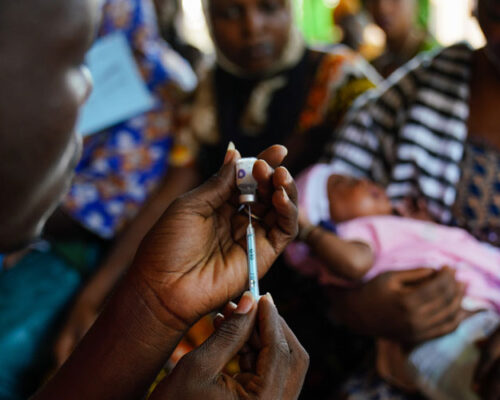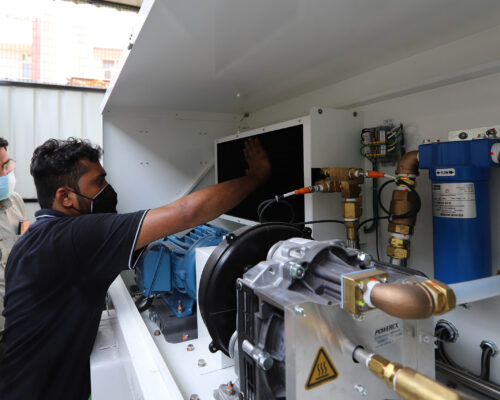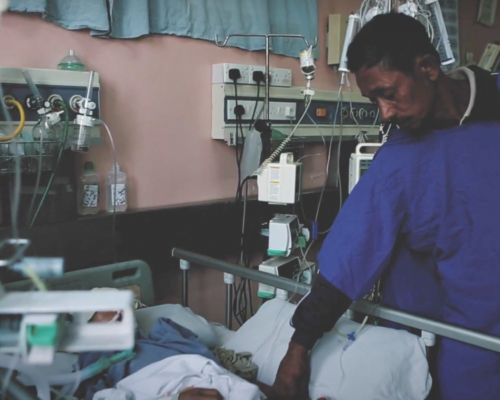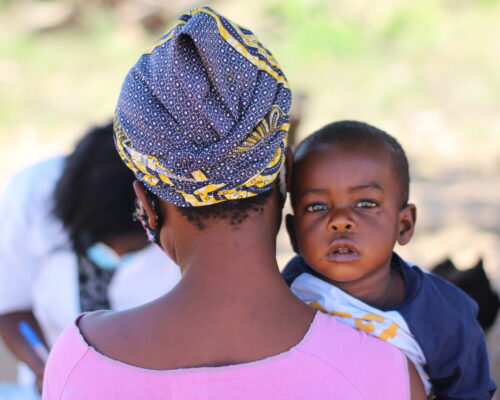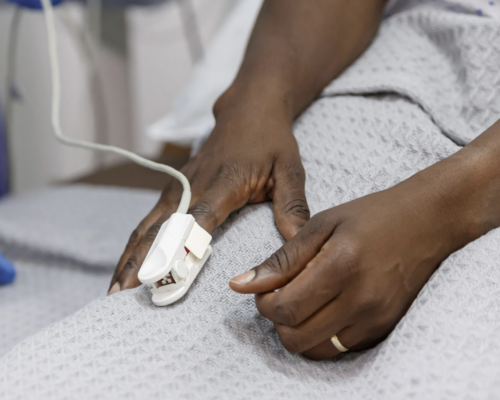
2nd Global Forum on Childhood Pneumonia
The 2nd Global Forum on Childhood Pneumonia was held in April 2023 to build on the momentum from the first Global Forum and leverage the attention COVID-19 focused on respiratory health to reduce child pneumonia deaths. The two-day event launched 38 new and ambitious commitments to accelerate introduction and scale up of lifesaving interventions, including full coverage of the pneumonia-fighting vaccines (e.g., PCV, pertussis, Hib, and measles), reductions in child malnutrition, as well as rapid access to diagnosis and treatment with antibiotics and oxygen, especially as part of strong primary health care systems.
Senior representatives from the Spanish Government, leading health ministry officials from a subset of countries with high burdens of child pneumonia, donor governments, foundations, NGOs, companies and academic institutions came together in-person to rejuvenate the fight to reduce child pneumonia deaths and boost national child survival progress. Leading experts showcased the latest evidence on best practices and high-impact programs and solutions with the power to dramatically reduce child pneumonia deaths, especially through integrated services that reach the most vulnerable children (e.g., zero dose children). The 2nd Global Forum also explored opportunities to strengthen child health services by leveraging the political momentum and pandemic support that high-burden countries have received.
The event took place during World Immunization Week and after UNICEF launched the State of the World’s Children Report, which focused on fully protecting every child with life-saving vaccines. It was a key moment to reverse backsliding on childhood immunization, accelerate the introduction and scale up of existing life-saving vaccines (e.g., PCV), and plan for the introduction of promising new vaccines, including respiratory syncytial virus (RSV).
Pneumonia is the leading infectious cause of child mortality despite the availability of vaccines and medicines that can prevent and treat it. Most of the estimated 700,000 children under five who die from pneumonia each year live in a relatively small number of low- and middle-income countries with weak health systems that struggle to provide these vaccines and medicines. Children in these countries are also at an increased risk of pneumonia death due to malnutrition, polluted air, and low birth weight and preterm birth. COVID-19, climate change, and conflict are making it increasingly difficult to reduce child pneumonia deaths to the levels required to achieve the Sustainable Development Goals (SDGs) by 2030, unless specific actions are taken.
The 2nd Global Forum was a collaboration of 12 global health agencies who share a commitment to child survival.
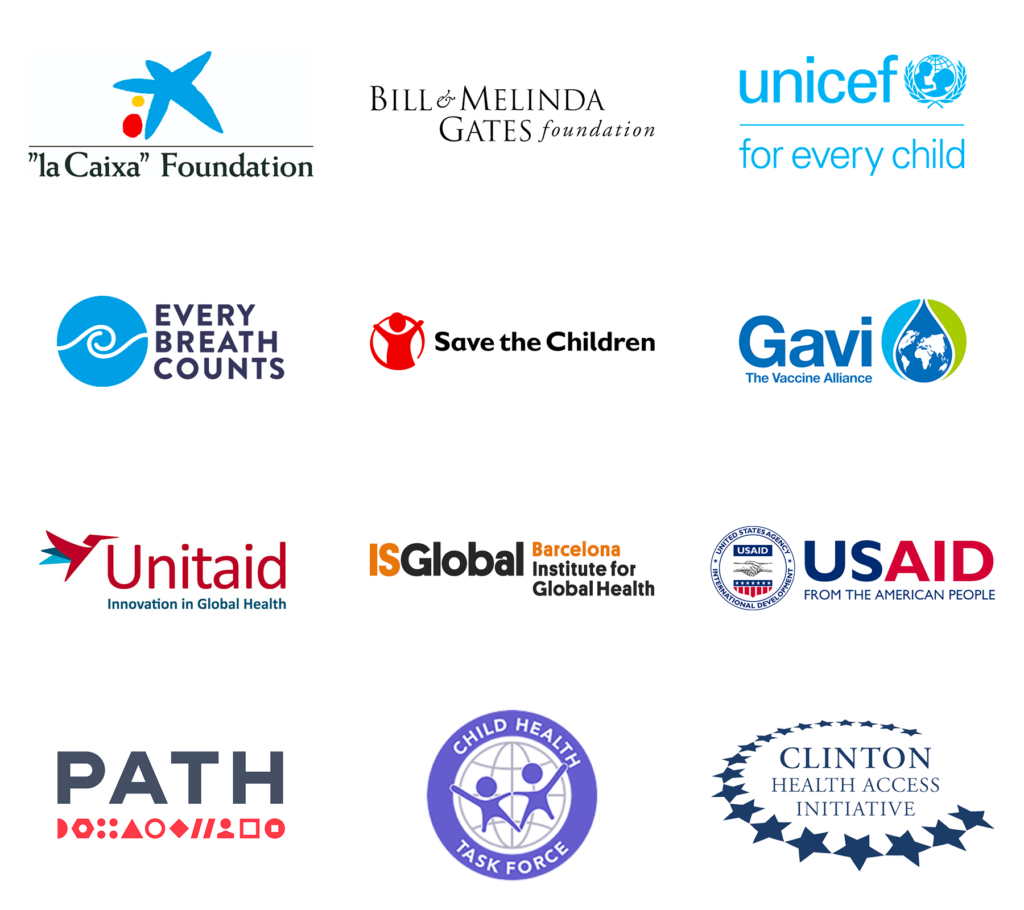
RESOURCES
**NEW** Commitment Progress Report – find out how the 38 commitment-makers are delivering on their milestone commitments six months after the 2nd Global Forum on Childhood Pneumonia
Program
Declaration and Commitments
- 2nd Global Forum – Declaration and Commitments (French) (Spanish)
- 2nd Global Forum – Commitment Social Media Cards
Key messages
- 2nd Global Forum – Key Messages (French) (Spanish)
- 2nd Global Forum – Social Media Toolkit (French) (Spanish)
Country profiles
- 14 Focus Country Profiles
- Child Health Spotlights (Save the Children, UNICEF)
Child Survival Action
- Child Survival Action Flyer
- Call to Action: Improve Access and Use of Quality Medicines (UNICEF, USAID, Child Health Taskforce)
Videos
Other resources launched at the 2nd Global Forum
- Child Pneumonia Research Investment Scorecard
- Pneumonia Control Strategies for Chad and Ethiopia (Malaria Consortium)
Media coverage
- The Guardian – Pneumonia vaccine delays kill thousands needlessly in Africa
- El Pais – The disease that kills the most children is preventable and curable, but only in rich countries
- El Pais – Objetivo “cero dosis”: llegar hasta los 18 millones de niños que no han recibido ninguna vacuna
- Health Policy Watch – African Countries Make Ambitious Commitments on Childhood Pneumonia, Zero-Dose Children & Child Mortality
- Devex – Gates Foundation commits $US200M to develop affordable childhood vaccines
- Nigeria Health Watch – X threads (with video clips) here and here
Find out about the 1st Global Forum here
The Promise of Reduced Dose Pneumococcal Vaccination for Children
Pneumonia is the leading infectious cause of death in children under five and, as a result, the pneumococcal conjugate vaccine, or PCV, is one of the most lifesaving vaccines. However, just six in every ten children are protected with PCV well below the global target...
17 March, 2024A2O2 Resource Library
The A2O2 Resource Library is a platform for all things oxygen - covering every aspect of the oxygen ecosystem from planning to equipment to patient care.
10 May, 2023You paid WHAT?
For the more than 400 million adults and children who get sick with pneumonia each year, the costs of treatment can be catastrophic - as individuals and families are forced to pay out-of-pocket for healthcare. Every Breath Counts is launching a new campaign to document these crippling costs.
09 December, 2022Antimicrobial resistance and pneumonia
How do we reduce inappropriate use of antibiotics for the treatment of pneumonia and close any remaining access gaps for pneumonia patients, especially children, who are missing out?
18 November, 20222nd Global Forum on Childhood Pneumonia
The 2nd Global Forum on Childhood Pneumonia built on the momentum for action generated by the first Forum in 2020, enabling countries to rapidly reduce child pneumonia deaths and accelerate achievement of the child survival SDG.
13 November, 2022Pulse oximeters that work for everyone
There is growing evidence that pulse oximeters do not work effectively on darker skin tones. This is unacceptable. Every Breath Counts has launched a petition to change this.
10 October, 2022


